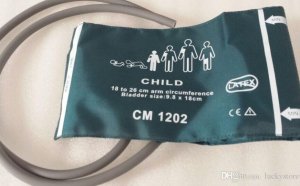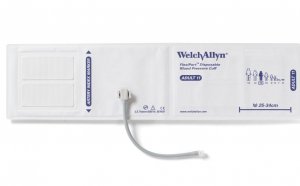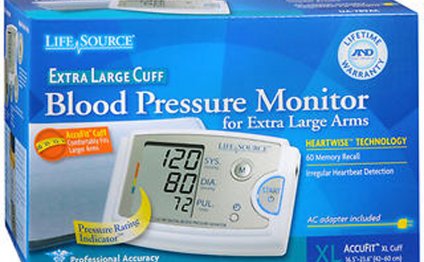
Microlife Blood pressure cuff
What are normal results and when should I see a doctor?
What is «White Coat Hypertension»?
Does blood pressure depend on age?
Medical Questions and Medical Opinions
In the following please find medically related questions and answers related to blood pressure and blood pressure monitoring. They are copied and translated from patient information of the Swiss Heart Foundation and we would like to thank the foundation for their kind permission for letting us use the following information.
- Swiss Heart Foundation
Schwarztorstrasse 18
CH-3000 Bern, Switzerland
phone: +41 / 31 388 80 80
fax: +41 / 31 388 80 88
(info(at)herzstiftung.ch)
Is it true that blood pressure is mainly measured with the "oscillometric" technique? What does this mean?
What should be considered when doing self-measurement?
Is a wrist device advisable for self-measurement?
Is it possible for my blood pressure to drop too low due to treatment?
Are side effects to be expected with drug treatment?
Can I stop taking medication due to side effects?
Can I stop taking medication at the weekend or on holiday?
- The following table represents the values (units mmHg) supplied by the World Health Organisation (WHO):
| Range | Systolic | Diastolic | Recommendation |
| blood pressure to low | < 100
|
< 60 | Consult your doctor |
| blood pressure optimum | 100 - 120 | 60 - 80 | Self-check |
| blood pressure normal | 120 - 130 | 80 - 85 | |
| blood pressure slightly high | 130 - 140
|
85 - 90
|
|
| blood pressure to high
|
140 - 160
|
90 - 100
|
Seek medical advice |
| blood pressure far too high
|
160 - 180
|
100 - 110
|
|
| blood pressure dangerously high | 180
|
110 | Urgently seek medical advice! |
- It is recommended that you record your blood pressure values frequently and discuss them with your doctor. If your systolic values are frequently above 140 and/or the diastolic values above 90, you should consult your doctor. It is normal that blood pressure values are sometimes higher and lower and there is no need to worry if the results are sometimes higher than the above limits. But if your pressure is above the limits in most cases, you should consult your doctor!
What is «White Coat Hypertension»?
- White Coat Hypertension (WCH) is the popular name for the effect that the patient's blood pressure might be detected on a higher level, when the measurement is performed by a doctor (in his typical white coat) or a nurse. This effect is caused because one often can be excited or nervous during such «official» measurements and the pressure will be accordingly higher. The problem is that the person may not have a pressure that is too high under normal conditions but might be diagnosed as hypertensive based on the doctor's measurement. Home devices are the best choice to prevent this «white coat effect». Some longterm studies have shown that people who have a higher pressure at the doctor also have a high risk to develop hypertension. Thus, these patients should check their pressure frequently.
Does blood pressure depend on age?
- In an average population, blood pressure in the elderly is higher than that in younger ages. This is based on reduced blood vessel elasticity in higher ages.
- The blood pressure should not frequently move above 140 / 90 mmHg even in higher age groups.
Medical Questions and Medical Opinions
In the following please find medically related questions and answers related to blood pressure and blood pressure monitoring. They are copied and translated from patient information of the Swiss Heart Foundation and we would like to thank the foundation for their kind permission for letting us use the following information.
- Swiss Heart Foundation
Schwarztorstrasse 18
CH-3000 Bern, Switzerland
phone: +41 / 31 388 80 80
fax: +41 / 31 388 80 88
(info(at)herzstiftung.ch)
Is it true that blood pressure is mainly measured with the "oscillometric" technique? What does this mean?
- In a doctor's practice or hospital, blood pressure is commonly measured with the conventional «sound method». Heartbeats are listened to with a stethoscope. These sounds in the blood stream occur in the arteries of the upper arm when the pressure in an inflated blood pressure cuff is slowly released. The first audible beat indicates the systolic blood pressure; the last audible beat indicates the diastolic pressure. Blood pressure measurements are read off a mercury column and are for that reason given as millimetres of a mercury column (mmHg).
- Oscillometry uses a different measurement principle. Most of the presently available devices for selfmeasurement use this method. Electronic microprocessors in oscillometric devices calculate blood pressure from the pressure fluctuations (oscillations), which occur due to the pulses in the blood stream. As beats are not relevant in this method, neither a stethoscope nor a microphone (integrated into the blood pressure cuff) are necessary. The blood pressure and pulse rate values can be read from an optical display at the end of measurement. Although these devices do not contain a mercury column, they show blood pressure in mmHg. With irregular pulse rates it is recommended that a doctor take the measurement.
What should be considered when doing self-measurement?
- Patients with high blood pressure should regularly measure their own blood pressure, since this gives the doctor valuable indications about the effectiveness of the treatment. The measurements should be recorded in a blood pressure record book and also fill in the «comments» section with observations such as: feeling unwell, dizziness, disrupted sleep, forgotten to take medicine, or physical or mental problems. It is important that you always measure your blood pressure on the same arm or wrist, morning and evening at the same time. You should not smoke, drink coffee or alcohol beforehand. Take your blood pressure measurement after a 5 minute rest, sitting and in restful surroundings. Make sure that the measurement is taken at the height of the heart. Compare your measurement with that taken by your doctor and get your blood pressure device calibrated (every 2 years) at specialized shops.
Is a wrist device advisable for self-measurement?
- The newly developed wrist devices also measure blood pressure using an oscillometric method. They are fully automatic: they inflate the pressure cuff automatically and automatically release the pressure again at the correct rate. Wrist devices measure blood pressure fairly reliably, if used correctly.
- Fully automatic finger devices, which measure blood pressure and pulse rate on the index finger, frequently give faulty readings, due to index finger is not held steady at the height of the heart or if the small terminal branches of the arteries «arterioles» are constricted due to cold fingers.
Is it possible for my blood pressure to drop too low due to treatment?
- Blood pressure may drop too low due to treatment. This can lead to dizziness when standing up quickly or bending down, extreme tiredness and lack of energy. If you notice these typical symptoms of too low a blood pressure (hypotension), you should talk to your doctor about a possible adjustment of the treatment. However, if you have low blood pressure without any problems, no changes to treatment are necessary.
Are side effects to be expected with drug treatment?
- At the beginning of treatment, a medication may temporarily trigger a physical or mental reaction, with tiredness, dizziness and difficulties in concentration if blood pressure drops quickly. The body gradually gets used to the lower level of blood pressure and the problems disappear with time. Few people taking a particular pressure reducing medicine have continuing side effects. There are side effects that are typical of a certain type of drug, which cannot be avoided by reduction of the dosage. An example is the troublesome, but harmless dry cough, which may be contracted by those taking an ACE inhibitor. If the cough is very disturbing, your doctor may switch to another drug (eg. angiotensin II antagonist).
- Skin disturbances, such as itching or rashes, also require a change of drug. With calcium blockers, the following harmless side effects have been observed: headaches, facial redness, swollen legs and ankles (oedema), as well as constipation. The most commonly reported side effects of beta-blockers include tiredness, potency problems, cold feet and hands. Low calcium levels in the blood, gout attacks and muscle cramps are possible side effects of diuretics. The best-tolerated drugs at present are the angiotensin II antagonists.
Can I stop taking medication due to side effects?
- It's unwise to neglect blood pressure treatment, if disturbed by side effects, so discuss any side effects immediately with your doctor. It is usually possible to improve tolerance by switching to a reduced dosage, changing to a different preparation or changing from a single drug therapy to a combination of 2 drugs.
Can I stop taking medication at the weekend or on holiday?
Source: www.microlife.com
RELATED VIDEO

Blood Pressure Part 1
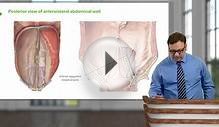
Blood Supply of the Abdominal Wall – Anatomy | Medical ...
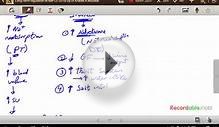
Long-term regulation of arterial blood pressure (2-2016 ...
Share this Post
Related posts
Automatic Blood Pressure Cuff
FEBRUARY 05, 2025
Amy Dixon has been writing on a local level since 2005, focusing on health and fitness. She is an ACSM Registered Clinical…
Read MoreWhere to Buy Blood pressure Cuffs?
FEBRUARY 05, 2025
Welch Allyn FlexiPort Soft Disposable Blood Pressure Cuffs with
Read More
